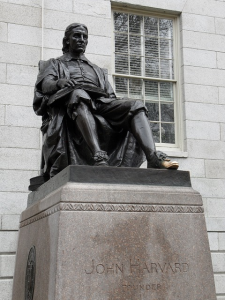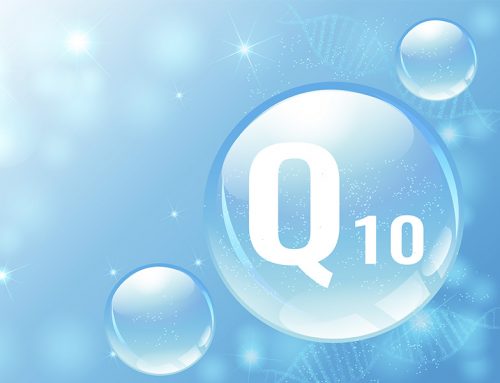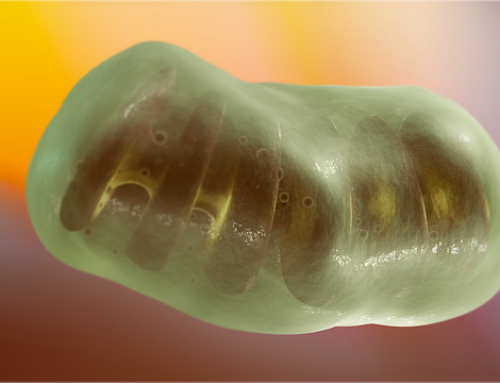The aging process is, seemingly, reversible. Harvard professor Dr. David Sinclair and his Harvard University research team have been conducting experiments with mice that show that the aging process can be driven forwards and backwards. In mice, researchers have been able to reset the cells multiple times, thus showing that aging can be reversed more than once [Yang, Sinclair 2023].

Dr. David Sinclair is a Harvard Professor in the Department of Genetics and the Co-Director of the Center for the Biology of Aging Research. His research interests focus on why and how we age and how to slow the aging process. Picture: John Harvard statue in Harvard Yard, Cambridge, Mass.
In the experiments, the researchers have been able to influence the aging process in both directions [LaMotte 2023]:
- to age young mice prematurely with harmful effects in nearly all of their tissues
- to help old, blind mice regain their eyesight, develop quicker, younger brains, and build healthier muscle and kidney tissue.
Now the question is: can the same outcomes be achieved in humans?
David Sinclair’s Information Theory of Aging
Sinclair believes that our cells hold on to a backup copy of our youth that can be “triggered to regenerate.” Accordingly, he thinks that aging occurs because our cells lose the ability to read our original DNA information and, as a consequence, forget how to function [LaMotte 2023].
More than DNA mutation, it is epigenetic changes that turn genes on and off and make the cells seem to panic and to lose information. Sinclair mentions such epigenetic factors as exposure to pollution and environmental toxins and poor human behavior, e.g., poor diet, smoking, lack of exercise, chronic lack of sleep [LaMotte 2023].
Fortunately, says Sinclair, there seems to be a “backup copy” in the cells that can be reset. Sinclair’s lab is researching how humans “can reboot the system by tapping into a reset switch that restores the cell’s ability to read the genome correctly again, as if it was young” [quoted in LaMotte 2023].
Treatment with the NAD(+) Precursor Nicotinamide Mononucleotide (NMN)
In numerous studies using mice, Sinclair’s team has been using treatment with the NAD(+) metabolic precursor nicotinamide mononucleotide (NMN) to rejuvenate cells and tissues and to slow or reverse the aging process [Uddin 2020].
Note: Nicotinamide adenine dinucleotide (NAD+) is a prominent co-factor in metabolic processes.
Telomeres and Biological Aging
In the studies with mice, Sinclair’s team has made the following observations about telomere shortening and premature aging [Amano 2019]:
- Telomere shortening is associated with stem cell decline, fibrotic disorders, and premature aging.
- Telomere shortening in the livers of telomerase knockout mice leads repression of all seven sirtuins – sirtuins are the downstream targets of dysfunctional telomeres.
- Administration of the NAD(+) precursor nicotinamide mononucleotide maintains telomere length.
- Increasing sirtuin activity stabilizes telomeres and mitigates telomere-dependent disorders.
Note: Telomeres are the segments of repetitive DNA sequences at the end of our chromosomes. Every time cells divide, the telomeres become shorter. Eventually, the telomeres become so short that the cells can no longer divide, and the cells die. Telomerase is an enzyme necessary for the preservation of telomeres [Telomere 2023].
Note: Sirtuins are enzymes that regulate apoptosis, cellular aging, and resistance to stress.
Coenzyme Q10 and Selenium to Preserve Telomeres and Reboot the Cells

Prof. Urban Alehagen hypothesized that senior citizens living in Sweden would benefit from daily supplementation with Coenzyme Q10 and selenium. The KiSel-10 Study data show that the combined supplementation significantly reduced cardiovascular mortality, improved heart function, and reduced systemic inflammation.
In Sweden, the KiSel-10 Study research team led by Professor Urban Alehagen has demonstrated that daily supplementation of elderly Swedish citizens, average age 78 years, with a combination of Coenzyme Q10 and organic selenium yeast prevents telomere attrition and reduces mortality from cardiovascular disease [Opstad 2022].
Specifically, the researchers examined the length of telomeres in leukocytes in blood drawn at the start of the KiSel-10 Study and again at month 42 of the study. They focused on telomere length in leukocytes as a good bio-marker for telomere length in other cells and tissues in the body [Opstad 2022].
Note: Leukocytes are white blood cells.
Conclusion: Coenzyme Q10 and Selenium Supplementation Prevents Telomere Attrition and Slows Aging
Professor Alehagen and the KiSel-10 Study researchers noted the following important outcomes:
- There was significantly less shortening of the telomeres in the study group that had received the active CoQ10 and selenium treatment as compared to the placebo group [Opstad 2022].
- Study participants who suffered a future death after the end of the KiSel-10 Study had significantly shorter leukocyte telomere length at 42 months than did survivors [Opstad 2022].
- The preservation of leukocyte telomere length after CoQ10 and selenium supplementation was associated with reduced cardiovascular mortality [Opstad 2022].
Sources
Amano H, Chaudhury A, Rodriguez-Aguayo C, Lu L, Akhanov V, Catic A, Popov YV, Verdin E, Johnson H, Stossi F, Sinclair DA, Nakamaru-Ogiso E, Lopez-Berestein G, Chang JT, Neilson JR, Meeker A, Finegold M, Baur JA, Sahin E. Telomere dysfunction induces sirtuin repression that drives telomere-dependent disease. Cell Metab. 2019 Jun 4;29(6):1274-1290.e9.
LaMotte S. Old mice grow young again in study. Can people do the same? CNN Health. 2023, January 13. Retrieved from https://edition.cnn.com/2023/01/12/health/reversing-aging-scn-wellness/index.html
Opstad TB, Alexander J, Aaseth JO, Larsson A, Seljeflot I, Alehagen U. Selenium and Coenzyme Q10 Intervention Prevents Telomere Attrition, with Association to Reduced Cardiovascular Mortality-Sub-Study of a Randomized Clinical Trial. Nutrients. 2022 Aug 15;14(16):3346.
Telomere. National Human Genome Research Center. Genome.gov. 2023, February 23. Retrieved from https://www.genome.gov/genetics-glossary/Telomere
Uddin GM, Youngson NA, Chowdhury SS, Hagan C, Sinclair DA, Morris MJ. Administration of Nicotinamide Mononucleotide (NMN) Reduces Metabolic Impairment in Male Mouse Offspring from Obese Mothers. Cells. 2020 Mar 25;9(4):791.
Yang JH, Sinclair DA, et al. Loss of epigenetic information as a cause of mammalian aging. Cell. 2023 Jan 19;186(2):305-326.e27.
The information presented in this review article is not intended as medical advice and should not be used as such.








Leave A Comment